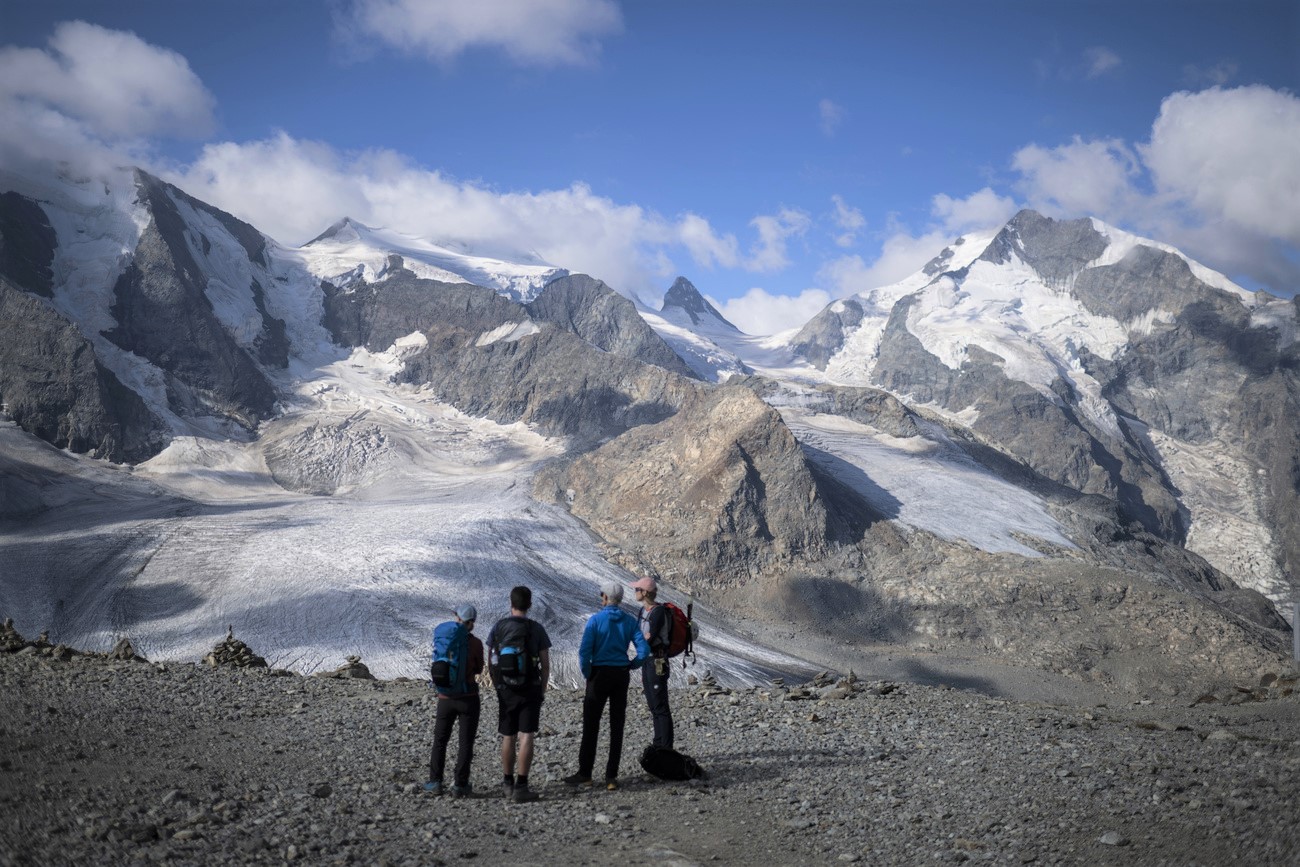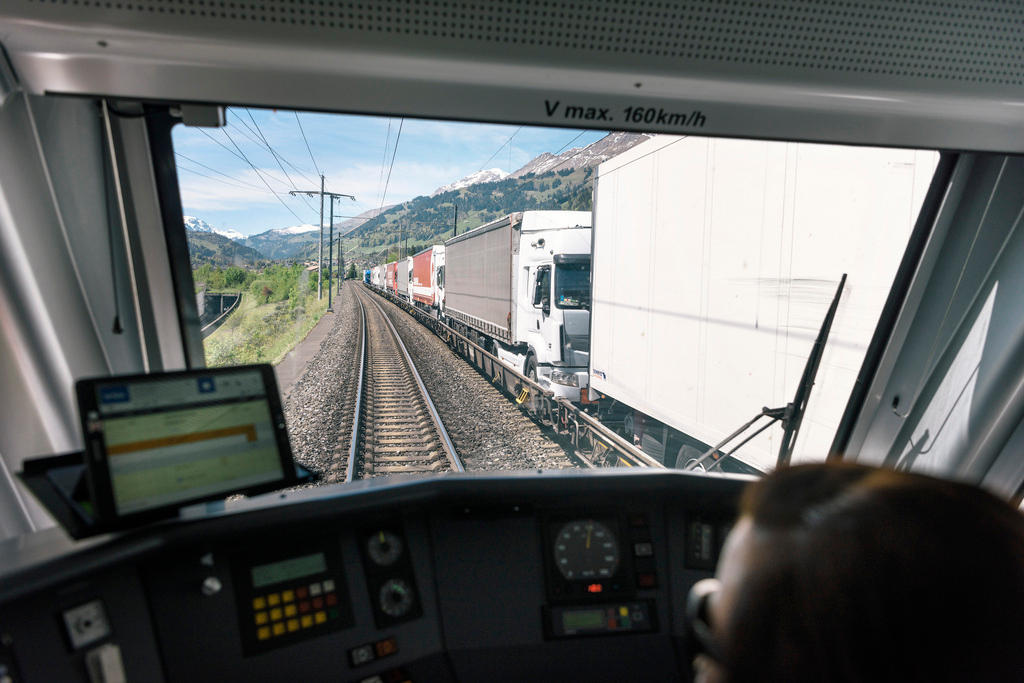
Alpine nations aim for climate-neutral transport by 2050

Eight European countries have met in Switzerland to forge a plan of action towards net-zero emissions in passenger and freight transport in the Alps.
Meeting in Brig, canton Valais as the “Simplon Alliance” (in reference to an Alpine pass linking southern Switzerland and Italy), the countries discussed various joint actionsExternal link that could help to reduce the impact of goods and tourism transport in the mountains.
Measures suggested include the continued promotion of a shift from road to rail, incentives for the use of carbon-neutral vehicles, using data to improve traffic efficiency, and harmonising ticketing systems for cross-border public transport.

More
For Swiss glaciers, 2022 was a ‘disastrous’ year
Transport, which makes up 30% of greenhouse gas emissions, is a particularly sensitive issue in the Alps, which are a key crossroads for continental traffic but which are also twice as exposed to the impact of climate change as elsewhere.
The Alps suffer “direct repercussions [of global warming] that almost no other region in Europe experiences”, said Maria Lezzi of the Swiss Federal Office for Spatial Development on Thursday.
Lezzi – filling in for the absent Swiss Environment Minister Simonetta Sommaruga – played host in Brig to representatives from Germany, France, Italy, Austria, Slovenia, Monaco, and Liechtenstein.
Missing signature
The countries involved are the combined members of the Alpine ConventionExternal link – which works for sustainable development in the Alps – and the Zurich ProcessExternal link, which is focussed on the challenges of transalpine traffic. Both bodies are currently presided by Switzerland.
While seven of the eight countries signed up to the terms of the Alliance – which is not legally binding – on Thursday, the actual finalisation of the document will be delayed by the absence of an Italian signature; an absence not due to opposition, but rather due to procedural issues concerning the new Italian government, the Keystone-SDA news agency reported.

More
Has Alpine rail transport come far enough?

In compliance with the JTI standards
More: SWI swissinfo.ch certified by the Journalism Trust Initiative




























You can find an overview of ongoing debates with our journalists here . Please join us!
If you want to start a conversation about a topic raised in this article or want to report factual errors, email us at english@swissinfo.ch.